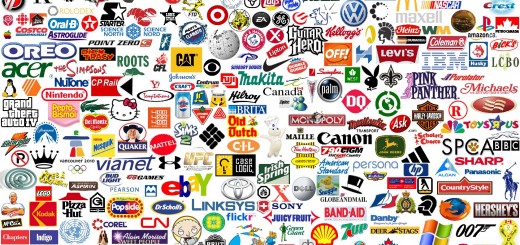‘Adoption, Implementation & Experimentation’, Interview With Ulrich Hegge, AppNexus
Despite a large online population, a broad range of providers of advertising and marketing solutions, as well as a strong publishing landscape, the German market has yet to enter the ‘high-development’ phase of programmatic.
In an interview with AppNexus’s newly appointed VP strategic market development DACH, Ulrich Hegge (pictured) talks about his switch back into an operational role, sheds light on what sets the German-speaking region apart from other European markets and shares his predictions for 2016.
ExchangeWire: Prior to joining AppNexus, your main focus was on consulting and investing. What motivated you to go back into a functional role in a company?
Ulrich Hegge: It’s always been a personal trait of mine to be in the midst of any activity that I consider truly interesting; I’m not content with simply being a bystander. I’m always keeping on top of the latest and most significant digital trends, particularly those I helped to get started over the course of my career. Programmatic has been around for a while now, but it’s still gaining huge momentum. It has proven to be the most efficient marketing technology and process for delivering online campaigns, but a wealth of media across print, TV, and audio isn’t truly leveraging this power; and there are so many ways to further improve the products and services for the existing markets and partners. That’s why I’ve chosen to be part of this market-changing momentum, again.
What attracted you to AppNexus?
AppNexus has always been on my radar. A couple of years ago, I met AppNexus’ co-founder and CEO Brian O’Kelley and president Michael Rubenstein, and we kept in touch. After I decided to go back to a fully operational role in digital marketing, it soon became very obvious that this was the perfect match.
Can you share some of your goals for your role at AppNexus? What are you hoping to achieve as DACH leader?
It’s too early for a detailed plan, but I will pay close attention to what the market has to say about its challenges and opportunities. AppNexus has the right solution for quite a few of the current problems in the DACH market. The tech is now ready to support quick testing and fast optimisation, even in complex scenarios. And given the scale of AppNexus, and the capabilities of the underlying platform, we will be able to develop services for our partners in a way that smaller or conflicted competitors quite simply can’t. This is a message I plan to spread and make real.
Germany has been very slow to adopt RTB, and even programmatic. Are you seeing a change in the way the market is approaching automated buying and selling?
The pace has accelerated in 2015, but it is driven by a few players who aren’t necessarily the best partners for most of the market. I see a change in the expectations of the market regarding the underlying technology; it’s just not feasible to spend so much time and money in trying to integrate so many different solutions. There’s definitely a growing awareness that right now there’s too much complexity, too many players involved in getting the message from the advertiser to the customer. The creation of a seamless and effective solution will drive faster adoption, while delivering better value for advertisers, as well as publishers. Meanwhile, education about the opportunities, as well as an open and transparent debate about potential issues, will remain key for gaining trust.
How different is the German market from other major European markets?
The DACH region has been dubbed ‘mid-development’ in terms of programmatic by the IAB Europe, as opposed to the UK and France, for example. This is quite surprising, if you consider the size of the market. The first reason might be that Germans tend to observe and examine new trends very thoroughly. Does it work, will it benefit me in the long run? While there’s nothing wrong with that, it means that you have to have a proven solution for a real problem before you can scale your business. Secondly, Germans tend to be skeptical of the commitment of non-German vendors. Will they adapt to the specific market needs, are they here to stay? Well, I guess we can answer all of this now.
How is AppNexus adopting its platform to adapt to the German programmatic model?
AppNexus has quite a few significant partners already, like Interactive Media and United Internet Media – and more to come soon. So, it’s not like we aren’t aware of the German programmatic model and haven’t already adapted to it. But, as we keep learning about the goals and strategies of existing and potential partners, the flexibility and speed of AppNexus’ full stack platform ensures we will be able to push their business further than others.
Is AppNexus’ big 2016 objective to compete with DFP in the German market with its full stack solution?
We definitely have an excellent solution now, and for some partners it might be a better solution than what they use today. Let’s leave it at this for now.
What key trends are we likely to see in the German programmatic market in 2016?
Generally speaking, we’re likely to see further adoption, putting to good use the first learning curve, and experimentation in terms of campaign types and processes to drive more effective engagement with consumers.
The post ‘Adoption, Implementation & Experimentation’, Interview With Ulrich Hegge, AppNexus appeared first on ExchangeWire.com.



